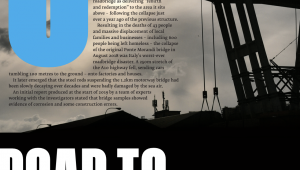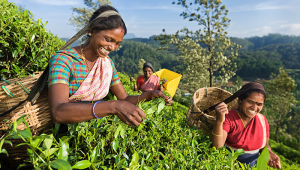In 2012, Sri Lankan accountant Buddhika Senanayake was working as a financial controller for a state-owned enterprise in the country’s food processing sector. The company had been acquired by the government because it was being managed inefficiently, and was operating out of a factory previously owned by a company in the spirits industry.
Senanayake explains that, around that time, provincial council elections were called, and an instruction made by the organisation’s senior management for the price of sugar, one of the company’s core outputs, to be reduced significantly – and for distribution channels to be narrowed to just a few entities.
“As part of the election campaign, reducing prices of essential commodities such as sugar was a nice sweetener for the electorate,” explains Senanayake.
But, as financial controller, it was Senanayake’s responsibility to find the cash required to run and maintain the factory, and to pay workers and suppliers. With the main sources of income being sugar and extra-neutral alcohol (ENA), a by-product of sugar production used when manufacturing spirits – the decision to reduce prices drastically affected revenue, and threatened his ability to maintain operations.
Senanayake’s suspicions of unethical behaviour were heightened when he received a call from a customer wanting to buy the entire stock of ENA at the newly discounted price.
“The company was in a cash crunch, and selling 350,000 litres of ENA would have been enough to fund operations for a month,” says Senanayake. “But we declined the enquiry based on the fact that it would incur losses and because it wasn’t a sustainable price model.”
He explains that, shortly after rejecting the offer, he received further pressure, via a call from a political wing attached to the ministry, instructing him to further reduce the price – without any written instruction.
“The reason given was that there was no demand for ENA. Even as a non-drinker who had only just joined the organisation, I could see there was something going on beyond commercial viability, as well as transparency,” he says.
“I was curious and shocked, and so I informed the factory’s chief executive, who was a veteran retired administrator, and fortunately he stood by my side.”
The chief executive advised Senanayake to check with the ministry permanent secretary. The secretary confirmed that the request had not been acceptable.
Following the discussions with his chief executive and the permanent secretary, Senanayake took charge of the pricing team and sales negotiations – after the organisation’s head of marketing had refused to do so in light of the pressure form the political wing.
“One company stopped doing business with us in light of the new pricing structure, which was tough, but another I contacted was surprised to hear from us – having not heard from the factory in years,” Senanayake adds.
In just three days, the team had negotiated repeat sales of 350,000 litres of ENA per month.
“The total impact of this price protection – although I would rather call it a battle against bribery and corruption or fraud detection – was nearly US$2.5m per year,” Senanayake says.
“Ethical practice is highly needed in developing countries such as Sri Lanka, because corruption is higher than in the developed world.
“I take pride in sharing my personal experience in combating bribery and corruption in safeguarding public funds.”
Have you face an ethical dilemma whereby doing the right thing benefitted your organisation and maintained the integrity of the public sector? We want to promote stories of good ethical practice. Email [email protected] and let us know.













